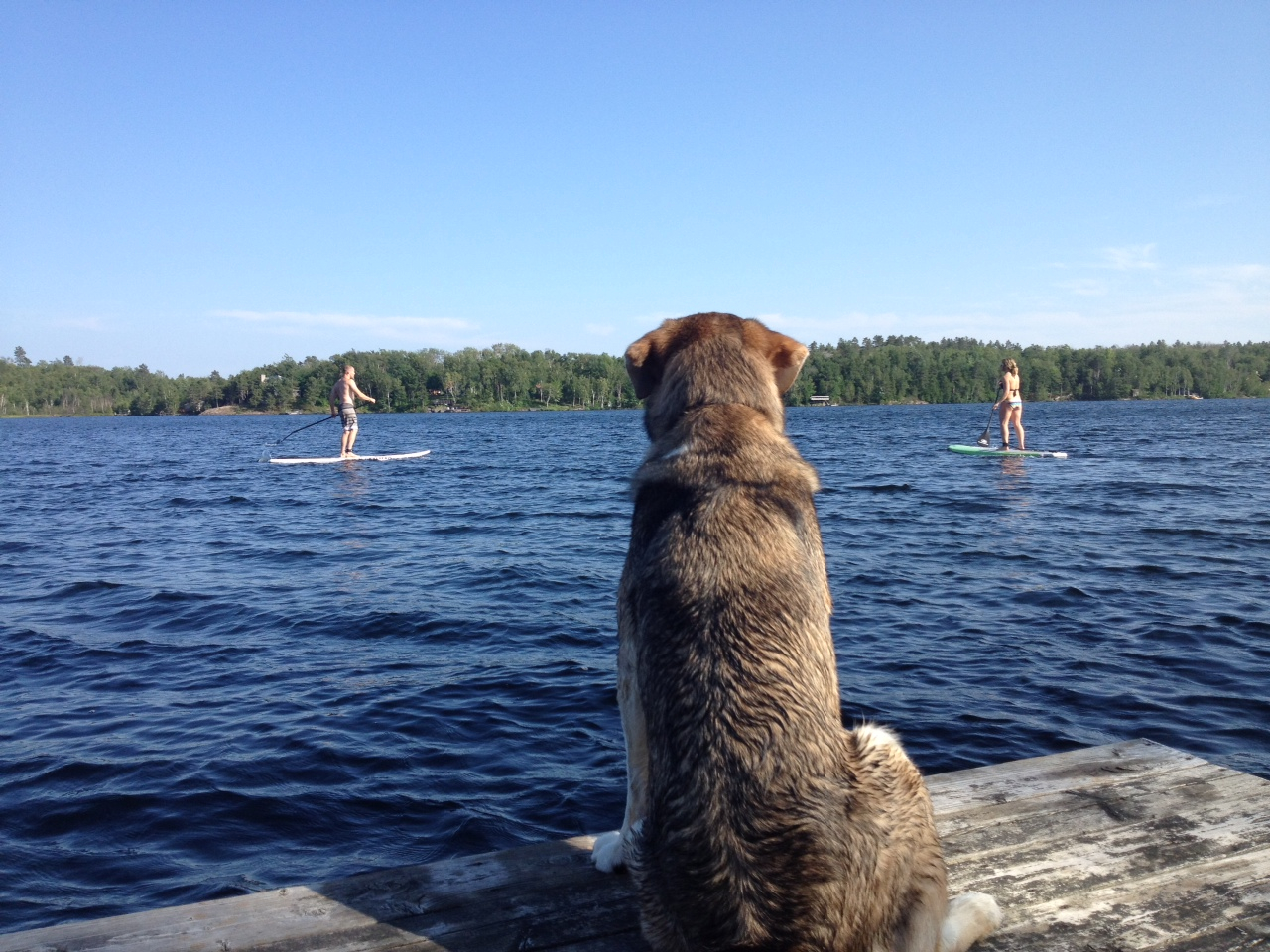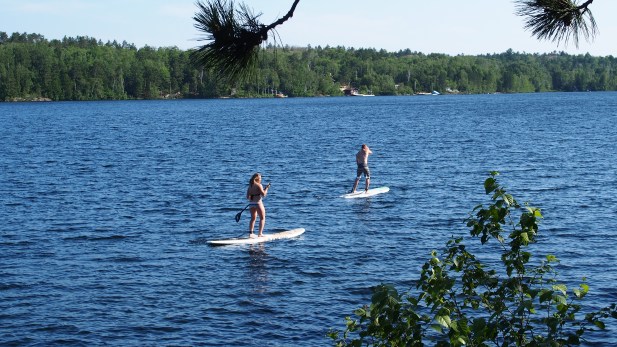Hey Folks!
This is a little bit long, but well worth the read. Wouldn’t YOU want to know how to hack your behaviour in a SINGLE step???
The Backstory:
I overcooked some pork chops on the barbeque (grilling in the dark is not my forte) and since tough, charred pork chops are not the most appetizing thing in the world, we ended up throwing the worst victims in the trash.
I usually put the garbage out the night before, and this week was no different. As we know “wild” animals like to find their treats in the trash, and I imagine a cat or raccoon discovered, though did not eat them. The garbage wasn’t completely destroyed, and I just re-bagged it, as aside from a partially eaten pork chop, the rest was easy to gather into a new bag in the morning. This was on a Friday morning.
Fast forward to Tuesday morning and Lucky and I are going for one of our longer walks (we take long walks on Tuesdays and Thursdays). While walking by the rock in front of our house, Lucky is very interested in smelling the ground, and I like to indulge his canine instincts, so I wait. After glancing away, I look back to see Lucky being very secretive about the prize he’s found. He tries to play it cool and continue walking as though he doesn’t have anything with him, but I inspect his maw to find… a tough, charred, even more partially eaten pork chop. He’s a great guy so he let’s me have it with minor coaxing. I throw it back into a pile of leaves near where he found it, and we continue our walk.

The Result:
Every walk I have taken Lucky on since that day (in early SEPTEMBER) he returns to the spot where the pork chop was to look for other treasures.
It isn’t just elephants that never forget.
The Conclusion:
You don’t need to be addicted to something (through repetitive use) for the reward centres in your brain to hack your behaviors.

and, The Discussion:
We spend a lot of time and money learning what we need to do in order to establish healthy habits and reduce our unhealthy habits (but more time spend on how to make those changes would be nice, right?). Sometimes this involves adding new (positive, hopefully) behaviours, and sometimes it involves removing old (negative, hopefully) behaviours. There is no intense, complex, or secret way to change your behaviour from wanting to go home to de-stress on the couch, to wanting to go to the gym to de-stress in the squat rack. Completely simplified, you need to derive MORE pleasure from the squat rack than you do the couch. You need to derive more pleasure from driving to the gym than you do your house. You need to derive more pleasure from the atmosphere, including smells, sights, sounds and feelings associated with going to the gym than you do from going home. And then you need to do it again and again.
Sometimes, it only takes one time. Those times need to involve very memorable experiences. Lucky remembers the deliciousness of that pork chop, and even though it was only there 1 out of the 100+ times we’ve walked by that spot, it was awesome enough an experience to warrant checking that spot again (100+ times) just in case.
I genuinely love doing CrossFit. When I was first introduced to it, I met new, friendly people, I worked harder than I had in a LONG time, and I felt like I had accomplished something when I was finished. I get that feeling every time, even if I don’t break my previous record, or if I feel as though I could have worked a little harder.
Kristin and I tried Stand-Up Paddleboarding while we were on a leisurely drive through the muskoka area. A sunny, warm day on calm waters and a shared board meant lots of funny falls, beautiful landscapes and no deadlines. We had a blast and we immediately began shopping for stand up boards of our own when we got home. Contrast that to convincing ourselves it was a good idea to try paddleboarding on Lake Ramsey during a very windy day, with whitecaps on the water, during May (AKA ~60 degree water) and we experienced an hour to 2 hours of stressful paddling. Had that been my first experience with the paddleboard I can’t say whether or not I’d be as enthusiastic about doing it as I am now.
Enough stories…
The next time you want to add or remove a behavior from your life, keep this “hack” in mind. An open mind, a smile, and paying attention to your atmosphere, and what you really enjoy about it can make a BIG difference in helping you choose that option in the future. Because then you aren’t choosing between being 1% closer to having abs or not, your choosing between feeling productive, catching up with friends, and improving your energy levels, or not.
That’s all for today, Folks. As always, Stay Healthy! 🙂
Dr. Adam Ball
p.s. If you know some “hacks” or even have a story about something you tried once and were hooked since, share it in the comments or on your own “wall” on the facebook.
References:
Article from Scientific American, explaining Operant Conditioning, by Jason G. Goldman: http://blogs.scientificamerican.com/thoughtful-animal/what-is-operant-conditioning-and-how-does-it-explain-driving-dogs/
Dopamine Neurons Encoding Long-Term Memory of Object Value for Habitual Behavior Kim, Hyoung F. et al. Cell , Volume 163 , Issue 5 , 1165 – 1175 http://www.ncbi.nlm.nih.gov/pubmed/26590420

